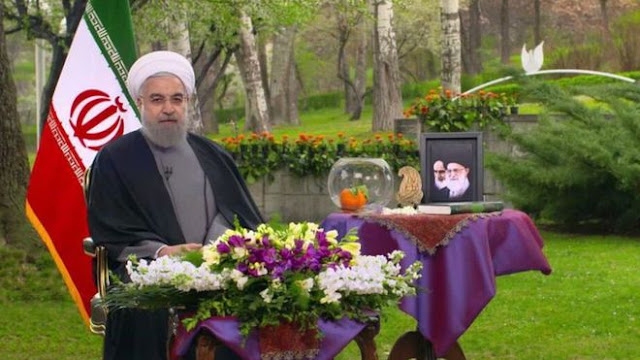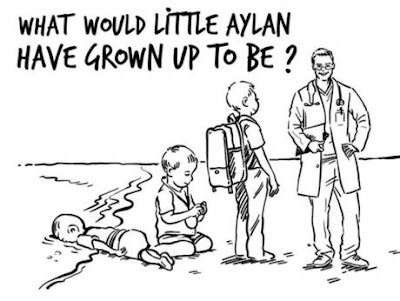Ghana, now is the time to let your parliament know how you really feel about the Interception of Postal Packets and Telecommunications Messages Bill.
Public outcry has already renamed the bill everything from an ‘Interception of Communications Bill’ to a ‘Spy Bill’, both widely seen as more to-the-point titles. At issue is the fact that the bill would allow the Ghanaian government to listen to, record and intercept the communications of individuals viewed as a threat to national security (without defining whom these individuals might be).
According to Ghana’s Ministry of Interior, “the object of the bill is to enact legislation for the lawful interception of postal packets and telecommunication messages for the purpose of fighting crime, suppressing organized crime including money laundering, terrorism, narcotic trafficking, identity theft and generally for the protection of national security.” As it is currently written, the bill establishes safeguards such as requiring a court order or warrant in order to intercept communications, but is also riddled with troubling loopholes.
Of main concern is provision 4(3) of the bill: “The national security coordinator may where there is the need for urgency, orally authorise the interception without a warrant of a postal-packet or telecommunication message but the oral authorization shall be confirmed by obtaining a warrant from the high court within 48 hours after the oral authorization has been issued.”
The clause has been criticized for deregulating the interception of communications and placing unchecked power—albeit briefly—in the hands of a single individual, as opposed to a court.
In the words of Ace Anan Ankomah and Susan-Barbara Adjorkor Kumapley: “What this means is that the National Security Coordinator, a person appointed by the President and who reports to the President, can intercept your correspondence/communications, listen to your phone calls, and read your letters and text messages, for 48 hours without any independent checks and balances, or guarantees against abuse; and he can simply avoid going to court by terminating the interception before the 48 hours is over. Then he can, arguably, resume the interception for another 48-hour cycle. There is no one to check to see what he is going to use that for because the Bill removes the legislative check captured in the EI [Executive Instrument] requirement, and defers (potentially indefinitely) the judicial check in seeking a court order/warrant.”
The lack of protections during this two-day window is in direct violation of Ghana’s 1992 constitution, a document which, as the Ghana Bar Association (GBA) acknowledged, “seeks to blunt the capricious effect of such circumstances by demanding safeguards that are rooted in the rule of law, best exemplified, for now, by making the judiciary (an independent institution) the first point of call for purposes of determining whether such interference qualifies within the exceptions justifying interference with a person’s privacy.” The GBA argued that the bill did not allow for the supervision necessary to regulate whether information was in fact obtained during or outside of the assigned 48-hour period and also asked that any information obtained during this questionable timeframe not be treated as “lawful” or admitted in court proceedings.
Of further concern is the fact that this bill would override the protections granted by several laws already in place. Currently, interception without a warrant is prohibited by the Security and Intelligence Agencies Act, EOCO Act, Narcotics Control Act, Electronic Communications Act (ECA), the Mutual Legal Assistance Act and the Electronic Transactions Act. Although the Interception of Postal Packets and Telecommunications Messages Bill would consolidate interception legislation into one place, its convenience would come at the expense of lost oversight, as its 48-hour clause eliminates not only warranted interception but also the process established for the President to intercept communications via an Executive Instrument (EI).
Ghana’s parliament went into Easter recess last week with the promise that the feedback of stakeholders and the public alike would be welcome components of the bill’s consideration. Don't let this opportunity go to waste...and regardless of the outcome, keep surfing secure and staying Rando!
Want the latest freedom of speech and cybersecurity news from around the world? Read on!
Public outcry has already renamed the bill everything from an ‘Interception of Communications Bill’ to a ‘Spy Bill’, both widely seen as more to-the-point titles. At issue is the fact that the bill would allow the Ghanaian government to listen to, record and intercept the communications of individuals viewed as a threat to national security (without defining whom these individuals might be).
According to Ghana’s Ministry of Interior, “the object of the bill is to enact legislation for the lawful interception of postal packets and telecommunication messages for the purpose of fighting crime, suppressing organized crime including money laundering, terrorism, narcotic trafficking, identity theft and generally for the protection of national security.” As it is currently written, the bill establishes safeguards such as requiring a court order or warrant in order to intercept communications, but is also riddled with troubling loopholes.
Of main concern is provision 4(3) of the bill: “The national security coordinator may where there is the need for urgency, orally authorise the interception without a warrant of a postal-packet or telecommunication message but the oral authorization shall be confirmed by obtaining a warrant from the high court within 48 hours after the oral authorization has been issued.”
The clause has been criticized for deregulating the interception of communications and placing unchecked power—albeit briefly—in the hands of a single individual, as opposed to a court.
In the words of Ace Anan Ankomah and Susan-Barbara Adjorkor Kumapley: “What this means is that the National Security Coordinator, a person appointed by the President and who reports to the President, can intercept your correspondence/communications, listen to your phone calls, and read your letters and text messages, for 48 hours without any independent checks and balances, or guarantees against abuse; and he can simply avoid going to court by terminating the interception before the 48 hours is over. Then he can, arguably, resume the interception for another 48-hour cycle. There is no one to check to see what he is going to use that for because the Bill removes the legislative check captured in the EI [Executive Instrument] requirement, and defers (potentially indefinitely) the judicial check in seeking a court order/warrant.”
The lack of protections during this two-day window is in direct violation of Ghana’s 1992 constitution, a document which, as the Ghana Bar Association (GBA) acknowledged, “seeks to blunt the capricious effect of such circumstances by demanding safeguards that are rooted in the rule of law, best exemplified, for now, by making the judiciary (an independent institution) the first point of call for purposes of determining whether such interference qualifies within the exceptions justifying interference with a person’s privacy.” The GBA argued that the bill did not allow for the supervision necessary to regulate whether information was in fact obtained during or outside of the assigned 48-hour period and also asked that any information obtained during this questionable timeframe not be treated as “lawful” or admitted in court proceedings.
Of further concern is the fact that this bill would override the protections granted by several laws already in place. Currently, interception without a warrant is prohibited by the Security and Intelligence Agencies Act, EOCO Act, Narcotics Control Act, Electronic Communications Act (ECA), the Mutual Legal Assistance Act and the Electronic Transactions Act. Although the Interception of Postal Packets and Telecommunications Messages Bill would consolidate interception legislation into one place, its convenience would come at the expense of lost oversight, as its 48-hour clause eliminates not only warranted interception but also the process established for the President to intercept communications via an Executive Instrument (EI).
Ghana’s parliament went into Easter recess last week with the promise that the feedback of stakeholders and the public alike would be welcome components of the bill’s consideration. Don't let this opportunity go to waste...and regardless of the outcome, keep surfing secure and staying Rando!
Want the latest freedom of speech and cybersecurity news from around the world? Read on!
SumRando Cybersecurity is a Mauritius-based VPN, Web Proxy and Secure Messenger provider. Surf secure and stay
Rando!










